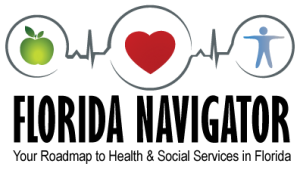Are You at Risk for Falling
The Savvy Senior
By Robert Goodman, MSW
This article is dedicated to the memory of a close friend who fell and as result of complications from her diabetes died earlier in the summer. Falls are a major issue for older adults and can be prevented. Most falls occur at home and can lead to fractures, trauma, and death.
1. Over 13 million older adults fall every year; 1 of 3 if over 65, and 1 of 2 if over 80 years old.
2. 2.2 million older adults are treated in the ER for falls.
3. 40% of nursing home admissions are fall related.
4. In 2009, about 20,400 older adults died from unintentional fall injuries.
There are a number of causes of falls among the elderly. They include:
Lack of physical activity and muscle weakness
Balance and gait problems
Visual impairment
Mobility impairment
Cognitive impairment
Drop in blood pressure when standing up
Fear of falling
Alcohol abuse
Inappropriate footwear
Environmental hazards. One third of all falls in the elderly population involve hazards at home. Factors include: poor lighting, loose carpets and lack of safety equipment.
Chronic health problems that can increase fall risk significantly are:
Arthritis
Obesity
Functional limitations impairing mobility (Diseases such as Parkinson’s, Alzheimer’s, COPD, Pain, etc.)
Multiple medications
Hypertension
Diabetes
Falls can be prevented by taking care of yourself and making changed in your environment. The following suggestions will help reduce the chances of falling/
Be physically active and exercise regularly.
Improve the lighting in your home, Keep an easy to reach lamp near your bed.
Move items to make them easier to reach. Arrange furniture to allow for clear pathways.
Get rid of loose (throw) rugs, especially if you have a visual disability. Be sure rugs are securely fastened to the floor.
Install grab bars in the bathroom (shower and near toilet)
Clear clutter from floors
Avoid slippery floors
Be careful carrying heavy or bulky things up or down stairs
Have Your Medicines Reviewed
Limit the amount of alcohol you drink. Even a small amount can affect your balance and reflexes.
Choose Safe Footwear
Be careful while walking and talking or texting on a cell phone.
Have Your Blood Pressure Checked When Lying and Standing
Get a Vision Check-Up
Wear your eyeglasses so you can see your surroundings clearly.
Check your medications: Some medicines—or combinations of medicines— can have side effects like dizziness or drowsiness. This can make falls more likely. Having a doctor or pharmacist review all your medications can help reduce the chance of risky side effects and drug interactions.
If you fall, or are afraid of falling, be sure to discuss the fall with your doctor, even if you aren’t hurt. Many underlying causes of falls can be treated or corrected.
There are a number of devices that can help prevent falls, but one must remember to use them. They include: canes, walkers, reachers, and emergency medical alerts.
People living alone should have a medical alert to contact the fire/rescue in the event of a fall. Friends and neighbors should check on their neighbors who live alone and are isolated. See accompanying article on medical alerts.
(Sources: http://nihseniorhealth.gov/fall, www.cdc.gov/features/fallrisk, Pam Hapke (Easy Living Program))


